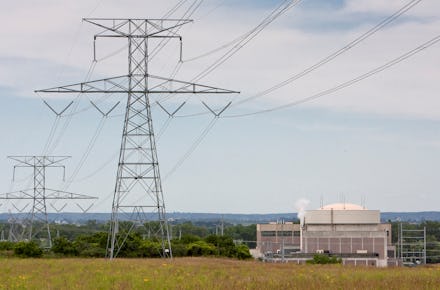Hackers have been targeting US nuclear power facilities since May, according to new report

A joint report from the Department of Homeland Security and the FBI reveals hackers have attempted to breach multiple United States nuclear power plants.
According to the New York Times, whose staff obtained the report, the hacking operation has been underway since May, and carries an “urgent amber warning.”
The motivation for the hacking efforts — be it espionage or terrorism — remains unclear, and the Times reported officials are still unsure whether hackers were ultimately able to penetrate facilities’ operating systems. The hacks largely targeting individuals working at the nuclear power facilities via emails containing fake resumes coded with malware.
While the Times doesn’t name any suspects in the hack, Bloomberg reported that “three people familiar with the continuing effort to eject the hackers from the computer networks” said Russia is the chief suspect.
A spokesman for the Nuclear Energy Institute, which oversees the 99 electric utilities operating U.S. power plants, told the publication that so far none of the power plants have reported any operation problems since the hacks.
The outlet cites Russia’s success hacking parts of Ukraine’s electrical grid as proof that Russian hackers have the chops to disrupt country’s power supplies. Suspicions that Russia could be involved in the power plant hacks also arrive in the wake of news that Russia has increased its surveillance of the U.S. following the 2016 election — an election they meddled in by hacking Democratic National Committee emails.
Though President Donald Trump continues to let Russia off the hook for its election hack, in May, he signed an executive order to safeguard the country’s cybersecurity against attacks that would endanger the American people.
“We never anticipated that our critical infrastructure control systems would be facing advanced levels of malware,” Jon Wellinghoff, the former chairman of the Federal Energy Regulatory Commission, told the Times.